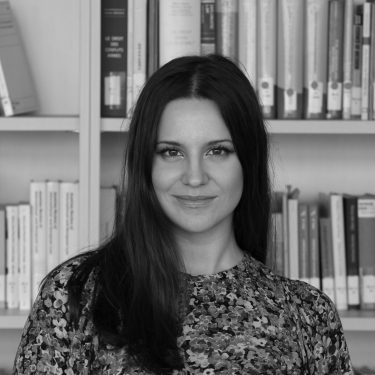Journal articles are okay but blogposts go all the way! The road to publication of journal articles (let’s not even dwell on the process for books) is often paved with many agonising experiences. Just recently, The-Journal-Which-Must-Not-Be-Named finally managed to send an article out to peer review that was submitted in spring (!). Not to claim that landing in the hands of peer reviewers brings an article’s final publication date any closer per se: depending on the number of reviewers as well as the rounds of reviews, the process can go on for quite some time.
Of course, it is all worth it because, when published, your article will be read by hundreds of people in the first months and then get heavily cited in the months that follow. “You will forget all about the birth when you hold your baby in your arms!” Right… This is not true for childbirth and definitely not for most publication processes either. In the end, it is often quite discouraging for young researchers to realise that their original research which often took years to prepare, conduct and share only reaches a very limited audience.
Nonetheless, there is no need to remain in this state of despair for too long because there are, of course, other ways to disseminate your research: submit blogposts! Overall, blogposts are more compact (and thus digested faster) and usually reach a much broader audience. In under ten minutes, readers are able to understand the key issues of a topic they may not have been aware of before. Besides the value of having mostly fast-paced interactions with editors and peer-reviewers, blogposts give authors the opportunity to get a dialogue going and test out new ideas with very little to lose.
But blogposts bear many gifts for editors too! Indeed, there is no such thing as a boring submission, as even the ones that we have to turn down are texts that bring to our attention current developments on international law-related matters. Such being the case, blogposts’ editors cannot help but remain updated on what’s going on in the sphere of international law.
Meanwhile, by reading the texts of various authors, editors manage to take a sneak peek at how other scholars develop their arguments. Through a “learning by doing” method, editors strengthen their own writing and argumentation-building skills. By familiarizing themselves with what happens behind the curtains, in the backstage area of the blogposts’ pre-publication process, they witness the shared difficulties that all of us, international law scholars, encounter while drafting academic texts. Indeed, in a world where academics’ self-esteem is severely hindered by a constant fear of incompetence and where, at the same time, an oversimplified picture of the road to academic excellence is painted across social media, debunking the myth of flawless first drafts is crucial.
Among their responsibilities, editors have the opportunity to actively contact and invite experts to write and comment on the developments of their respective fields. As a result, editors are able to enlarge their academic network and build cooperations with authors that would have been out of reach under different circumstances. Most of all, the editorial teams of international blogposts have the additional opportunity to connect with authors from all over the world. This adds, to the aforementioned benefits, the possibility of getting acquainted with alternative perspectives to international law, broadens the editor’s academic horizon and influences the deconstruction of the old-fashioned selection and editing processes. These processes traditionally relied heavily on “doctrinal method” and “western approaches to international law”.
On a more technical note, balancing the editorial work with substantive research leads editors to develop strong organizational and time management skills. Writing a PhD thesis, teaching and/or conducting academic research at a (post-)doctoral level, while maintaining the flow of an academic blog both vivid and ongoing requires a well-organized workflow. It is this environment that the editors learn to adapt to and it is these multiple and multifarious tasks that they learn to master. In this sense, editorial work allows them to be well-equipped with valuable tools for a demanding academic future in which multitasking, time-management and organisational skills are always required.
All of the above undoubtedly requires a lot of work on behalf of the blog’s editorial team. To this end, the Völkerrechtsblog recently joined forces with the Academy for European Human Rights Protection (University of Cologne), Chair of Public International Law and Public Law at LMU Munich and the Institute for International Law of Peace and Armed Conflict (IFHV) and the three of us – Cathérine, Meike and Sissy – were welcomed to the Völkerrechtsblog-team with open arms.
What did we bring to the table? Apart from our focus on human rights, refugee and environmental law, most certainly questions on top of questions. Have we settled in now? Absolutely and what a ride it has been! We are already looking back on three months working with this incredible team and hope to add many more in the future. Therefore, we would also like to take this opportunity to express our gratitude to Raffaela, Dana, Philipp and the rest of the Editorial Team, who relentlessly answered our never-ending questions and made our first steps into the world of the Völkerrechtsblog so smoothly.
Is our team complete now? Definitely not! Did our editorial convince you about the benefits of working with us? Then we might have just the right thing for you. Apply here for the position of a research assistant at the University of Erfurt and join the Editorial Team of the Völkerrechtsblog.
We look forward to having you on board!

Spyridoula Katsoni is Research Associate and PhD Candidate at Ruhr University Bochum’s Institute for International Law of Peace and Armed Conflict (IFHV).

Meike Krakau is a doctoral candidate and a research assistant at the Chair of Public International Law and Public Law at the Ludwig-Maximilians University (Munich). Her research interests include international environmental law with a special focus on climate change litigation, human rights law and international adjudication. She is a Co-Editor-in-Chief at Völkerrechtsblog.

Cathérine is a postdoctoral research fellow at the Academy for European Human Rights Protection (University of Cologne) and an affiliated researcher at the Human Rights Centre (University of Ghent). Her research is often socio-legal in nature and focuses on subjects such as procedural justice, perceived discrimination, Islamophobia as well as #MeToo and ‘Himpathy’. She follows the case law of the ECtHR and regularly contributes to third party interventions to the Court. She is a Managing Editor of Völkerrechtsblog.
